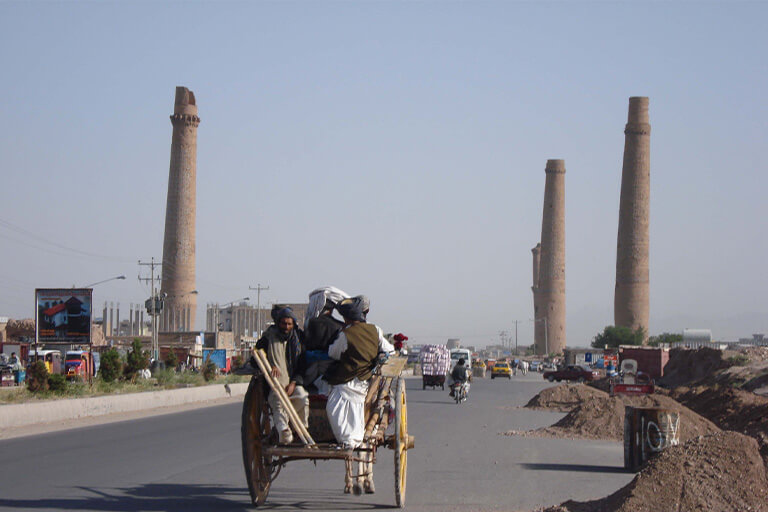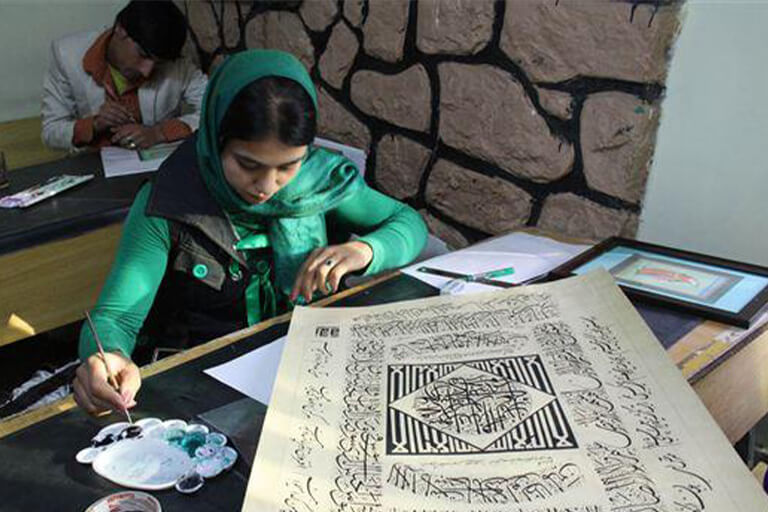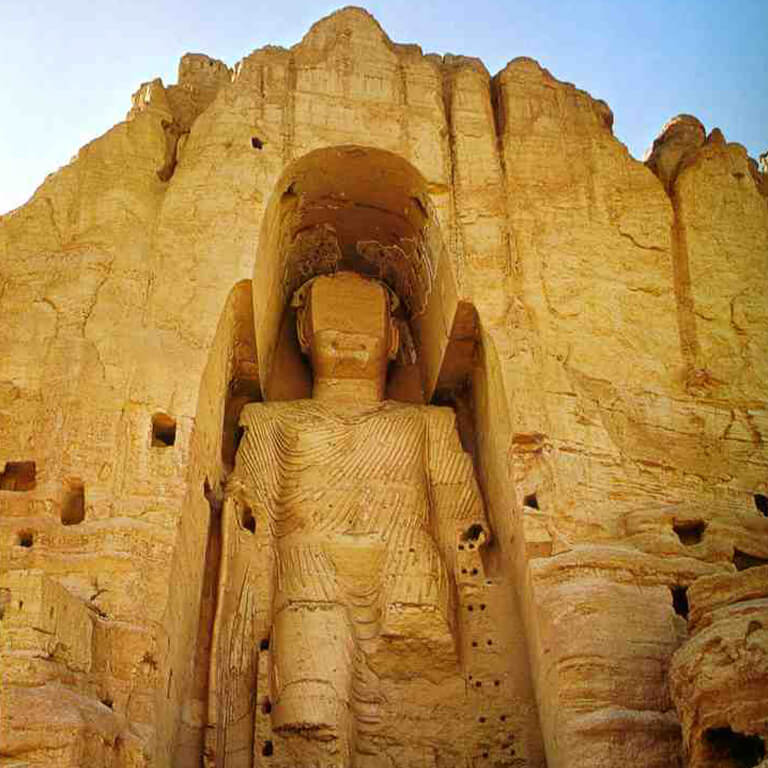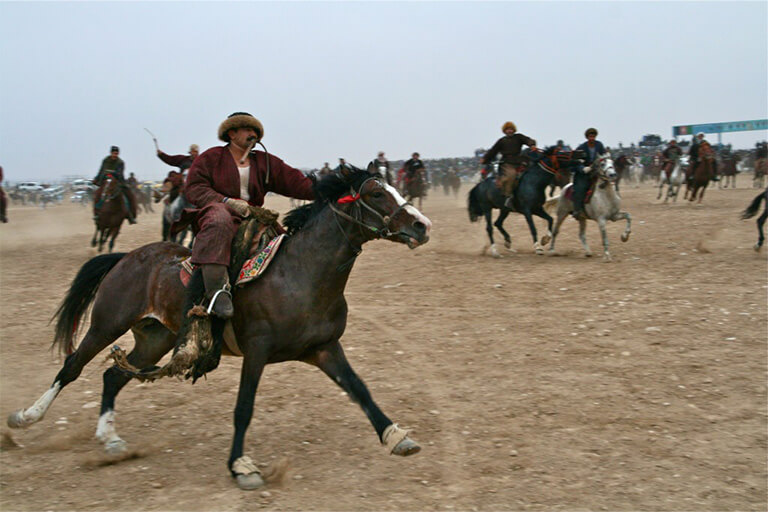Dari is spoken natively by roughly 50% of the population in Afghanistan and is one of the two official languages of the country (the other being Pashto); it is also spoken in some parts of eastern Iran. In Afghanistan, Dari has served as the lingua franca for many years, and is the main language of communication between people in most Afghan cities. Many Dari speakers, especially those in Central and Northern Afghanistan identify themselves as belonging to the Tajik ethnic group. However, many members of other ethnic groups, including Hazara, Pashtun, Uzbek, and Pamiris, speak Dari as a second language as well. Dari has a number of dialects, such as Shamali (Northern), Herati, Hazaragi, and Kabuli, which is the basis of the standard language. With the wars in Afghanistan, many Dari speakers found refuge in countries such as Iran, Australia, the United Kingdom, Germany, Sweden, Canada, and the United States.
Who Speaks the Dari Language and Where Do They Live?

What Kind of Language is Dari?
Dari, along with Farsi spoken in Iran and Tajiki spoken in Tajikistan, is one of the three literary languages that stem from a common language spoken in the Middle Ages called Pārsi (Arabized as Fārsi). Together with Farsi and Tajiki, Dari belongs to the West Iranian branch of Indo-European languages. The term Dari is derived from the word dar, which means the court in the classical language. So, Dari is “the language of the court.” Dari is an analytic or isolating language that uses auxiliary words to build constructions indicating grammatical meanings. It does not have gender or declension of nouns and adjectives; most plural nouns are regular.

There are a number of lexical, phonological, and syntactic differences and nuances that distinguish Dari from Farsi and Tajiki. These variations include the following: The use of certain tenses. For example, while Farsi uses the auxiliary verb dāštan ‘to have’ and Tajiki uses istādan ‘to stay’ to form the present and past continuous tenses, Dari does not employ any auxiliary verbs. It simply uses the habitual tense in combination with appropriate adverbs. Lexical differences. For example: ‘chair’ - čawkí in Dari, but sandalí in Farsi, and stul (Russian loanword) in Tajiki. ‘notebook’ - kitābča in Dari, but daftar in Farsi and Tajiki (daftar means ‘office’ in Dari). Additionally, due to its contact with people and languages spoken in Central Asia, Dari uses a considerable number of loanwords borrowed from Pashto, Indian, English, and some Turkic languages. Some commonly used Pashto loanwords include pohantun - ‘university’ and ş̌ārwāllí- ‘municipality’ Some commonly used loanwords from English include āys krim - ‘ice cream’, motar - ‘car’, and helikoptar - ‘helicopter’.
What Alphabet is Used to Write Dari?
Dari uses the uses the PersoArabic script, consisting of 32 letters, 8 vowels and 24 consonants. It is written and read from right to left and has no distinct capital letters. This script has several styles of handwriting: Dari uses the nasta’líq and shikasta styles.
What is the Culture of Afghanistan’s Dari Speakers?

For many centuries, Afghanistan has been the crossroads of numerous empires and cultures. Thelocal people and their traditions have been influenced for millennia by cultures and civilizations from Greece to India. In ancient times, the people of the area followed Zoroastrianism. Before the Arab invasion, in broad areas of the modern territory of Afghanistan, people followed Buddhism and Hinduism. After the Arab conquest, people converted to Islam. Today, the majority of Dari-speaking Afghans follow Sunni Islam, but there are a considerable number of Shi’ite Muslims living in Central (the Hazaras), Northwest (the Qizilbash), and Northeast (the Ismailis) Afghanistan.
Depending on the homeland and surrounding ethnic groups, some Dari-speaking Afghans still practice some more ancient traditions, such as some Zoroastrian traditions like Nawruz (Zoroastrian New Year) and setting candles on graves. Also, most Dari-speaking Afghans follow the principles of Pashtunwali (the “Pashtun code”), such as hospitality, honor, dignity, assistance, providing shelter to strangers, and respect for women, elders, and children. They also use the custom of shurā (group consultation) to solve issues that may emerge in the community. Overall, Darispeaking Afghans remain a family and community oriented society.
Farming, gardening, and animal husbandry are traditional occupations of Dari speakers, as they are with all Afghans. Staple crops include vegetables, wheat, barley, corn, and rice. Afghans still practice an ancient and exciting traditional sport called Buzkashi, or the ‘goat game.’ The game consists of two times competing over the carcass of a dead animal (these days usually a calf of a cow), and the first rider (or team) who is able to pitch the carcass across the goal line is the winner. Sometimes a game of Buzkashi can last up to a week!

Some Useful Phrases in Dari
.سالم. نامم کاترین است
[sɒˈlɔːm nɔːˈmeːm kɔːˈtrin ɒst]
/salaam. naamĕm kaatrin ast./
Hi. My name is Catherine.
نام شما چیست؟
[nɔːˈmeː ʃoˈmɒ ʧist]
/naam-ā shoma chēst?/
What is your name?
.چطور هستید؟ من خوب هستم، تشکر
[ʧɛˈtor hɒˈstɛd mɒn χob hɒˈstɒm, ˈtɒʃɒˌkor]
/chĕtor hastĕd? man khob hastam, tashakor./
How are you doing? I’m fine, thank you.
ً یک گیالس چای بیاورید. لطفا
[lotˈfɒn jɒk giˈlɔːs ʧɔːɪ biˈjɒ•ßɒˌrɛd]
/lotfan, yak gilaas chaay biya-varĕd./
Please bring me a cup of tea.
شما از کجا هستید؟
[ʃoˈmɒ ɒz koʣeː hɒˈstəd]
/šoma az kojā hasted?/
Where are you from?
.من از ایالت کالیفرنیا هستم
[mɒn ɒz kɒliˈforniyɔː hɒˈstɒm]
/man az kaliforniyaa hastam./
I’m from California.
.تشکر [ˈtɒʃɒˌkor] /tashakor./ Thank you.
.قابلش نیست [ˌqɔːbɛˈlɛʃ nɪst] /kaabĕleš nĭst./ You’re welcome.
.خدا حافظ ]χoˈdɔː hɔːˈfɛz[ /khodaa haafĕz/ Good-bye.
Five Reasons Why You Should Learn More About Dari Speakers and Their Language
- Dari is spoken as a first or second language by over 9.6 million people throughout Central Asian, most notably in Afghanistan, Iran, and Pakistan.
- A member of the Indo-Iranian language family, Dari shares many structural similarities to languages such as Farsi and Tajiki.
- Though few people in America can speak or use Dari, it has a growing influence on the political, economic, and strategic situations across the region and throughout the world. As a consequence, those who study Dari can find careers in a variety of fields including translation and interpreting, consulting, foreign service and intelligence, journalism, and many others. NGOs and other enterprises that deal with Afghanistan desperately need specialists who speak Dari.
- Modern Dari provides a good foundation to learn classical Persian, providing a gateway to the history, literature, culture, and languages of the Persian and Islamic world, stretching from Turkey to India.
- Learning Dari is fun! The grammar of Dari is easy to learn, and there are numerous resources on the web to help you learn. Most of all, learning Dari will bring you in contact with the warm and hospitable people of Afghanistan.

